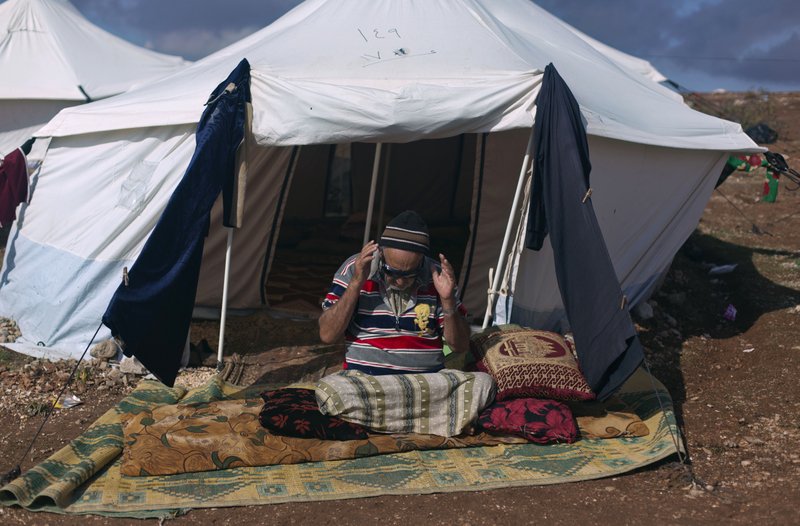JERUSALEM — Israel was drawn into the Syrian civil war for the first time on Sunday, firing warning shots into the neighboring country after a stray mortar shell fired from Syrian territory hit an Israeli military post.
The Israeli military said the mortar fire caused no injuries or damage at the post in the Golan Heights, which Israel captured from Syria in the 1967 Mideast war and then annexed. But in recent weeks, incidents of errant fire from Syria have multiplied, leading Israel to warn that it holds Syria responsible for fire on Israeli-held territory.
"A short while ago, a mortar shell targeted an IDF (Israel Defense Forces) post in the Golan Heights," said army spokeswoman Lt. Col. Avital Leibovich. "We answered with a warning shot toward Syrian areas. We understand this was a mistake and was not meant to target Israel and then that is why we fired a warning shot in retaliation."
The Israeli military also said it has filed a complaint through United Nations forces operating in the area, stating that "fire emanating from Syria into Israel will not be tolerated and shall be responded to with severity."
Israel and Syria are bitter foes who have fought several wars, but their shared border has been mostly quiet since a 1974 cease-fire. Still, Israel worries that Syria's civil war could spill across into the Golan, and repeated errant fire has intensified that concern.
Israel fears that if Syrian President Bashar Assad's regime is toppled, the country could fall into the hands of Islamic extremists or descend into sectarian warfare, destabilizing the region.
Israeli officials do not see Assad trying to intentionally draw Israel into the fighting, but have raised the possibility of his targeting Israel in an act of desperation. They also fear that Syria's stockpile of chemical weapons or other weapons could slip into the hands of Lebanon's militant Hezbollah group — a close Syrian ally — or reach other militants if Assad loses power.
Israeli officials also worry that the frontier region could turn into a lawless area like Egypt's Sinai desert, which Islamic militants now use as a launching ground for strikes against southern Israel.
Speaking to his Cabinet on Sunday, Prime Minister Benjamin Netanyahu said Israel is "closely monitoring" the border with Syria and is "ready for any development."
